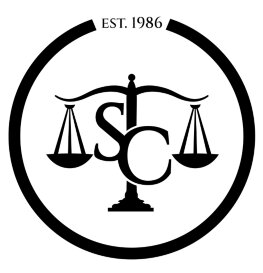Best Faith-Based Law Lawyers in Pietermaritzburg
Share your needs with us, get contacted by law firms.
Free. Takes 2 min.
List of the best lawyers in Pietermaritzburg, South Africa
About Faith-Based Law in Pietermaritzburg, South Africa
Faith-Based Law in Pietermaritzburg serves as a niche yet significant aspect of the legal framework, addressing the intersection between religious practices and the legal system. In South Africa, freedom of religion is enshrined in the Constitution, allowing individuals and religious groups to practice their beliefs. However, conflicts may arise when religious practices intersect with civil and criminal law. Faith-Based Law helps navigate these areas by offering specialized legal services and advice, ensuring that religious practices are respected within the bounds of the law.
Why You May Need a Lawyer
There are several scenarios in which individuals or religious institutions might seek legal assistance in Faith-Based Law:
- Disputes involving religious practices and public policies or regulations.
- Issues regarding the separation of church and state in educational settings or other public institutions.
- Legal concerns involving religious exemptions in employment or service environments.
- Disagreements over the application of religious laws within personal matters, such as marriage, divorce, and inheritance.
- Protecting the rights of religious institutions in property ownership and management.
- Legal challenges related to discrimination based on religious beliefs.
Local Laws Overview
Pietermaritzburg, as part of South Africa, adheres to national legislation that influences Faith-Based Law. Key legal instruments include:
- Constitution of South Africa: It guarantees freedom of religion and allows religious communities to establish institutions for religious purposes.
- Promotion of Equality and Prevention of Unfair Discrimination Act: This act prevents unfair discrimination based on religion.
- Marriage Act and the Civil Union Act: These provide a framework for religious marriages and civil unions, recognizing different forms of unions respected by specific faiths.
- Customary Law: Recognized under the South African legal system, it allows for the inclusion of religious practices in legal matters.
- Children's Act: Addresses issues of parental responsibility and rights, including those influenced by faith and cultural practices.
Frequently Asked Questions
What is Faith-Based Law?
Faith-Based Law involves the regulations and legal principles that manage the interaction between legal systems and religious practices, ensuring religious freedom is respected in accordance with the law.
Can religious laws override South African civil laws?
No, civil laws take precedence, but South African laws allow for religious practices to be respected and observed, provided they do not infringe upon constitutional rights or civil laws.
Are religious marriages legally recognized in Pietermaritzburg?
Yes, religious marriages are recognized under various acts, such as the Marriage Act and the Civil Union Act, which accommodate the rites and customs of different faiths.
How does Faith-Based Law address religious discrimination?
Faith-Based Law works within the framework of national legislation to protect individuals and institutions from discrimination based on religion, supporting equality and preventing unfair treatment.
What legal protections exist for faith-based schools?
Faith-based schools are allowed to operate with respect to their religious ethos but must comply with national educational standards and anti-discrimination laws.
How do religious institutions handle property ownership?
Religious institutions can own property, typically held in a trust or an association, managed in compliance with property and trust laws like any other legal entity.
Do faith-based organizations pay taxes?
Many faith-based organizations may qualify for tax-exempt status under certain conditions, but they must adhere to revenue and government regulations governing public benefit organizations.
Is there legal support for interfaith marriages?
Yes, interfaith marriages can be legally recognized, offering couples options in the legal framework to respect and honor different religious customs.
Can religious dress codes be challenged legally?
Yes, any legal challenge to religious dress codes involves balancing freedom of expression with institutional regulations, often resolved by adhering to constitutional rights.
How does one resolve a conflict between religious beliefs and employment requirements?
Such conflicts are typically mediated with respect to employment equality laws, ensuring non-discrimination while considering reasonable accommodations for religious practices.
Additional Resources
Individuals seeking further assistance can reach out to the following:
- South African Council of Churches: Provides guidance and resources relating to church-state matters.
- Legal Resources Centre: Offers legal assistance in matters of public interest, including religious freedoms.
- Office of the Public Protector: Protects the public's constitutional rights, including religious freedoms.
- Commission for the Promotion and Protection of the Rights of Cultural, Religious and Linguistic Communities: Addresses disputes and promotes the protection of religious communities.
Next Steps
If you require legal assistance in the realm of Faith-Based Law in Pietermaritzburg, consider the following steps:
- Identify the legal issue and gather relevant documentation related to your case.
- Seek initial advice from local legal aid clinics or religious institutions knowledgeable in Faith-Based Law.
- Contact a specialized lawyer or a law firm with expertise in Faith-Based Law to discuss your case in detail.
- Ensure you understand your legal rights and obligations throughout the process.
- Consider mediation or alternative dispute resolution as a potential first step in resolving disputes amicably.
- Stay informed about changes in legislation that may impact your situation.
By following these steps, you can efficiently navigate the legal aspects of Faith-Based Law while respecting your beliefs and adhering to the law.
Lawzana helps you find the best lawyers and law firms in Pietermaritzburg through a curated and pre-screened list of qualified legal professionals. Our platform offers rankings and detailed profiles of attorneys and law firms, allowing you to compare based on practice areas, including Faith-Based Law, experience, and client feedback.
Each profile includes a description of the firm's areas of practice, client reviews, team members and partners, year of establishment, spoken languages, office locations, contact information, social media presence, and any published articles or resources. Most firms on our platform speak English and are experienced in both local and international legal matters.
Get a quote from top-rated law firms in Pietermaritzburg, South Africa — quickly, securely, and without unnecessary hassle.
Disclaimer:
The information provided on this page is for general informational purposes only and does not constitute legal advice. While we strive to ensure the accuracy and relevance of the content, legal information may change over time, and interpretations of the law can vary. You should always consult with a qualified legal professional for advice specific to your situation.
We disclaim all liability for actions taken or not taken based on the content of this page. If you believe any information is incorrect or outdated, please contact us, and we will review and update it where appropriate.









